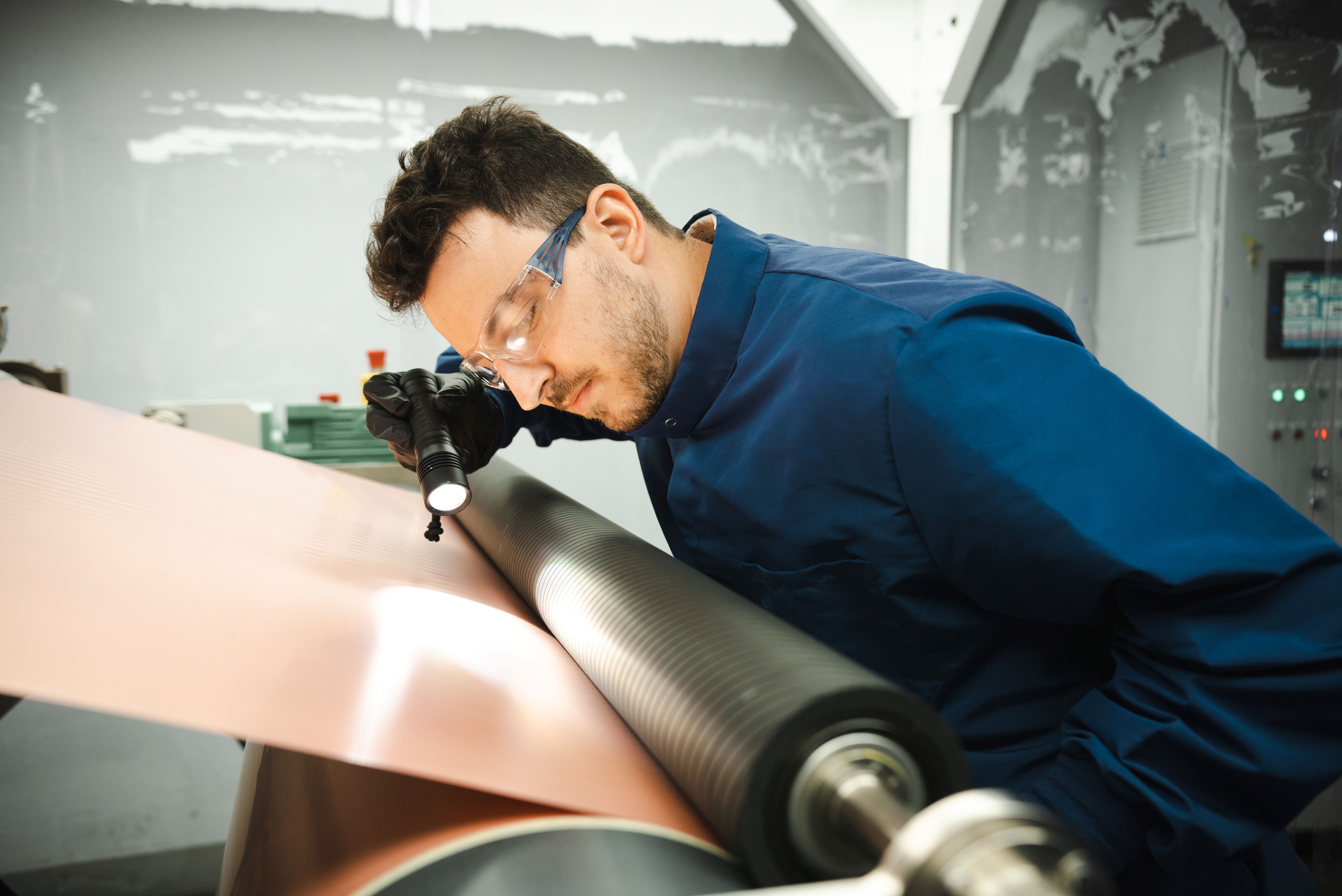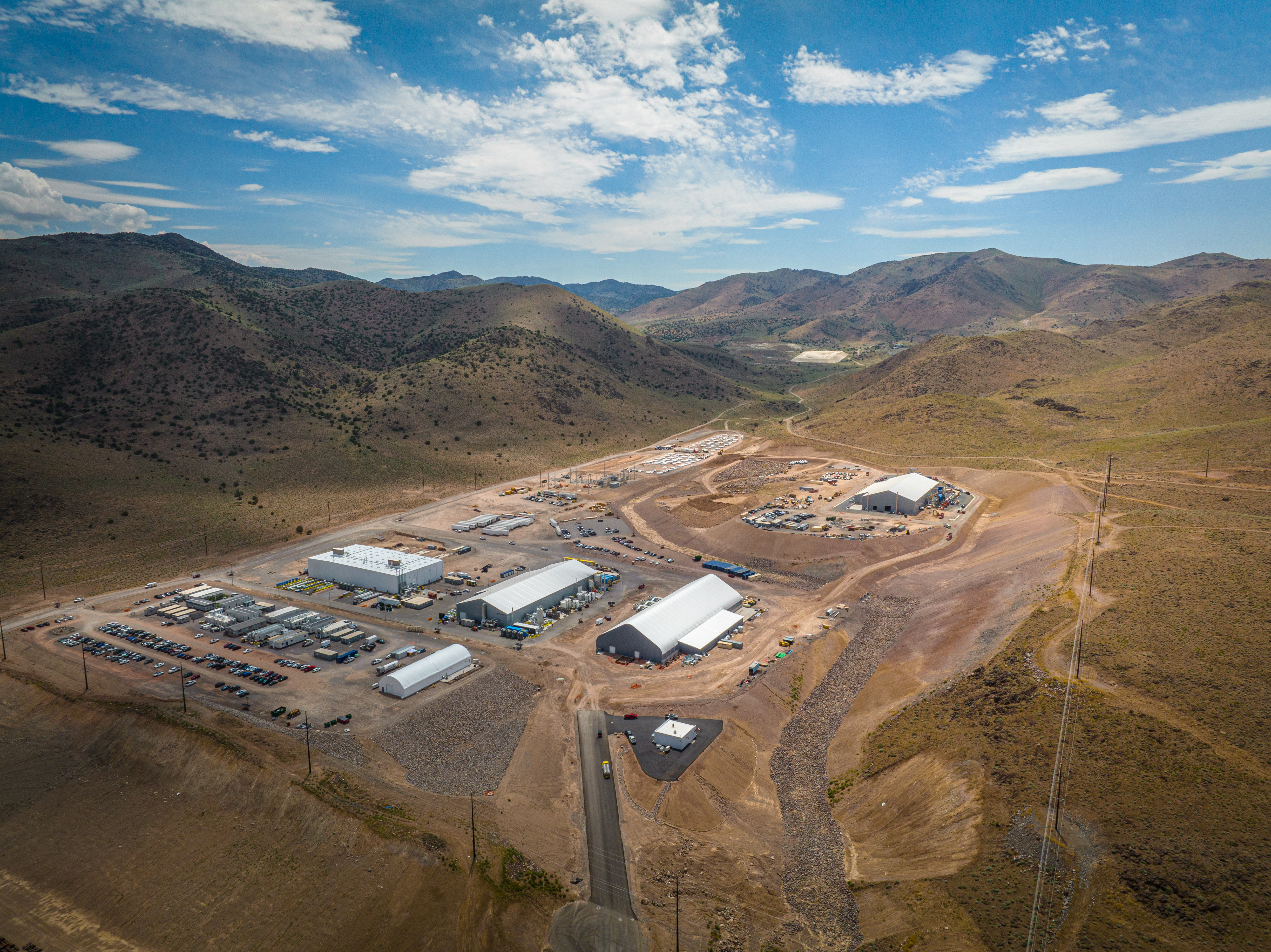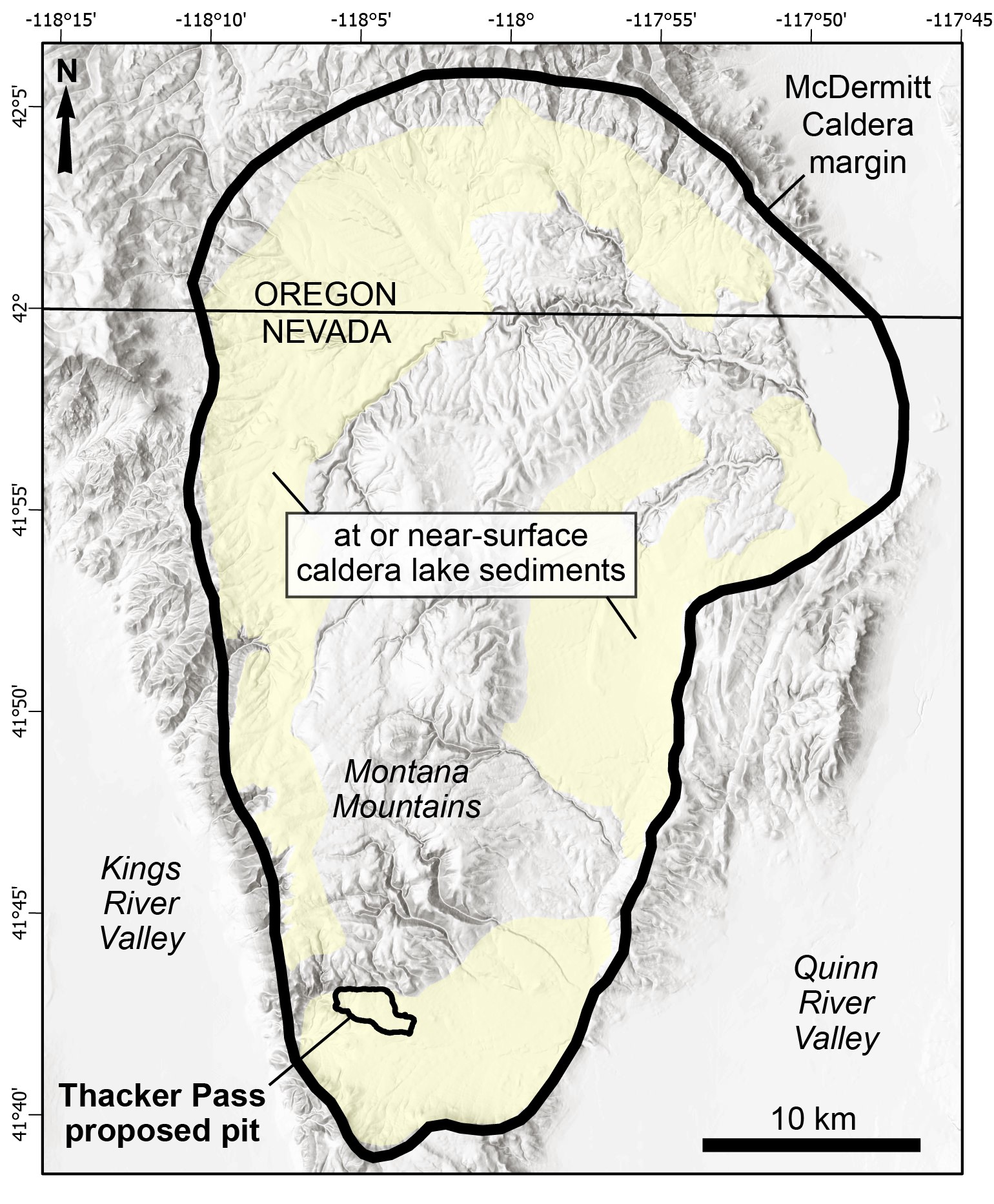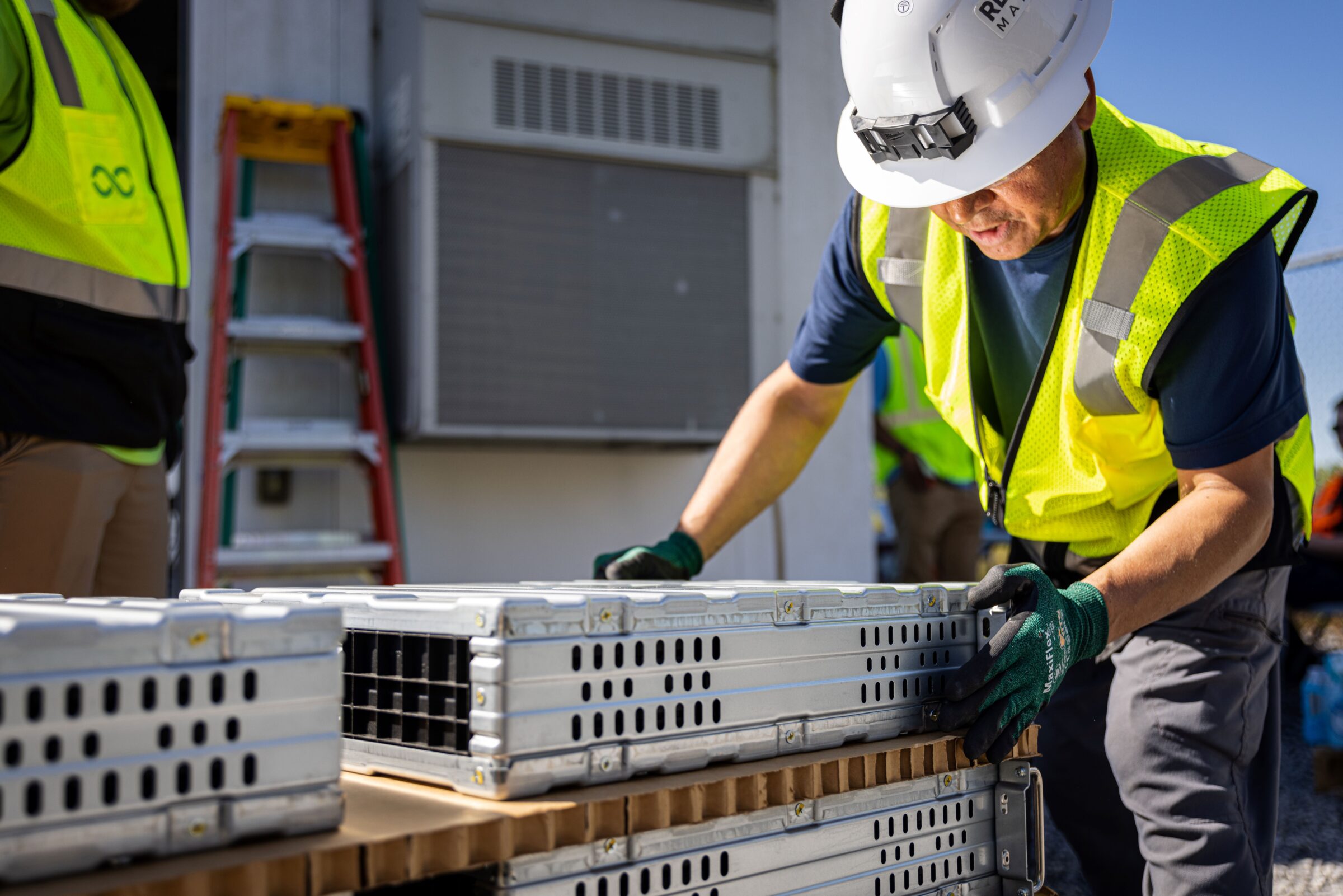Approximately 16.3 million years ago, a super volcano known as McDermitt Caldera formed in what is now Nevada. Over the eons the formation erupted, collapsed and went extinct. At one point in time, it was a lake, the waters extremely rich in lithium, yet that too dried up, transforming the terrain into Thacker Pass, the largest known lithium deposit in America and the third largest in the world.
In March, Lithium Americas Corp. announced that site preparation, geotechnical drilling, water pipeline development and associated infrastructure construction had commenced in Humboldt County for the Thacker Pass lithium project. The $2.2 billion investment will create an open-pit mine spanning 5,000 acres and is targeted to produce 80,000 tons per annum of battery-quality lithium carbonate between two phases. Phase 1 is expected to begin in the second half of 2026.
It is estimated that the lithium extracted and processed from Thacker Pass will be able to support the production of up to 1 million electric vehicles each year.
With this terrain essential to America’s clean energy transition, companies are racing to stake their claim on Nevada’s natural resources. General Motors has already invested $650 million into the project, the largest equity investment ever made by an automaker to produce battery raw materials.
All over the state corporations affiliated with the EV industry are investing in establishing and expanding their presence, creating thousands of jobs in the process.
Building by the Billions
Tesla is once again growing its footprint in Nevada. Over the last decade the company has invested approximately $6.2 billion in the state, which partially went toward constructing its 5.4-million-sq.-ft. Gigafactory in Sparks. Since 2014, millions of battery cells, battery packs, drive units and energy modules have been produced at the plant, which employs 11,000 Nevadans.
Tesla’s most recent investment, totaling $3.6 million, was announced in January. The official press release detailed plans to hire 3,000 new employees and construct two additional factories: a 100 GWh 4680 cell factory and the company’s first high-volume Semi factory, where Tesla’s fully electric combination truck will be produced.


In December 2022, Redwood Materials began producing anode copper foil at its new campus at the Tahoe-Reno Industrial Center.
Photo courtesy of Redwood Materials
In December 2021, Redwood Materials broke ground on roughly 300 acres in the Tahoe-Reno Industrial Center, with plans to construct 5.5 million sq. ft. of facilities dedicated to anode copper foil production, lithium-ion battery recycling and refining.
Only a year after construction commenced, the plant began producing its anode copper foil. Ultimately, Redwood Materials aims to develop 100 GWh of ultra-thin battery-grade copper foil and cathode-active materials from both new and recycled feedstock annually. With this asset created, there will be enough battery materials to support the production of more than 1 million electric vehicles each year.
Panasonic Energy of North America’s (PENA) Nevada location, which is housed at Tesla’s Gigafactory, is Redwood Materials’ first partner to source anode copper foil from its new operations.
“Our partnership with Panasonic began in 2019, and has scaled significantly since, with all recycling scrap from the Tesla Gigafactory now being recycled by the Redwood Team,” says Sonja Koch, Redwood Materials’ public affairs and consumer program manager. “Additionally, those recycled materials will be remanufactured into anode foil and returned to Panasonic at the Gigafactory, marking the first-time batteries will be recycled, remanufactured and then returned to the same factory in a fully closed loop.”
In support of Redwood Materials contributions to America’s clean energy efforts, the U.S. Department of Energy’s (DOE) Loan Programs Office (LPO) awarded the company a conditional loan commitment of $2 billion. After receiving this funding in February, Redwoods Materials is expected to create approximately 3,400 construction jobs and employ nearly 1,600 full-time employees, including labor, technical staff and on-site management.
The company also is pursuing a $3.5 billion battery materials campus in Berkeley County, South Carolina, expected to employ 1,500 people. The company this week announced it had closed a $1 billion funding round to expand operations in the U.S.
Readying the Workforce
As EV projects continue to flow in, Nevada is preparing the pipeline of workers this industry needs. This June, the Nevada Governor’s Office of Economic Development (GOED) awarded $5.8 million from the Workforce Innovations for the New Nevada (WINN) fund to four colleges.
“An important component for companies looking to move into Nevada is ensuring that they can tap into a skilled workforce,” said Governor Joe Lombardo. “The WINN fund is Nevada’s commitment to meet industry’s expectations that once they are here, they can find qualified employees.” With this funding, the selected colleges will be able to increase the state’s talent pool for emerging industries.
Great Basin College was allotted $545,000 to support the launch of an Instrumentation Technology program in Winnemucca. This funding will equip 42 trainees with the skills necessary to fill roles at Lithium American, Nevada Gold Mines and West Coast Salmon. GBC also received $165,000 to upgrade its labs with equipment suited for line bore and bore welding skills classes.
Western Nevada College was awarded $740,000 for its Battery Recycling and Advanced Manufacturing program. It will use this investment to develop and deliver new curriculum and training pathways that support the state’s battery recycling industry.
The College of Southern Nevada’s Computer Information Technologies program was awarded almost $1.8 million. The 750 students supported by this funding can work toward job opportunities at five major employers in the state — Nevada Nuclear Security Site, AIS, ICU Computer Solutions, Outabox and Synoptek. CSN also received more than $1 million for its Advanced Manufacturing program.

The Thacker Pass Project
Map courtesy of Lithium Americas Corp.
Of the 10 programs that received funding, five are located at Truckee Meadows Community College in Reno. TMCC’s Advanced Manufacturing Mobilization program received $715,000, which will be used to train 125 students, provide $300,000 in equipment and increase instructional capacity. There are 5,560 jobs available at Tesla, Panasonic and Haws in the areas this program supports.
Weeks before the GOED investment was announced, TMCC revealed that it had partnered with Panasonic Energy of North America (PENA) to create a new training pathway to support the state’s up-and-coming EV industry. The new program, set to begin this fall, offers training in advanced manufacturing, production, automation and robotics. Students who complete the program may be eligible for hire in entry level roles at PENA’s Nevada facility.
“Panasonic has committed to providing tuition reimbursement for their current employees and for those who are hired at the completion of the program,” said TMCC Foundation Executive Director Gretchen Sawyer. “Other companies are being approached to provide tuition reimbursement as well. We are excited about the opportunity to support students as they train for these positions.”
“Panasonic Energy is committed to being an employer of choice in Nevada, and investing in education and talent development is a top priority,” said Allan Swan, president of Panasonic Energy of North America in June. “TMCC has been a phenomenal partner since we’ve been in the community, and together we are dedicated to developing an American workforce and creating opportunities that help meet production demand, build a domestic supply chain and make EVs more accessible.”

